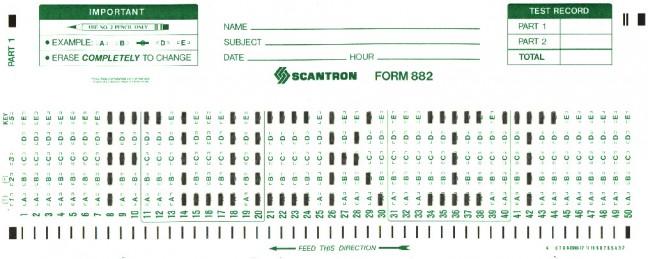Incessant midterms and long nights of studying have arrived at the University of Wisconsin in full force. As stress seems to permeate the air, I can’t help but feel like the process of exams could be made a lot more peaceful at UW, and at other colleges around the country, if there was a new and improved grading system.
Students are given grades which they are told represent them and their knowledge of a subject thus far, when really all a grade can truly measure is how proficient they were on the particular day of the test.
While students who do well on tests may argue with the previous statement, wanting their credit where it’s due, consider this: While a student might get the grade they deserve, a standardized test cannot demonstrate how they earned it. Standardized test results can’t differentiate between lucky guessing and aptitude, and they don’t take into account other factors that might influence academic performance. Beyond that, an exam grade holds too much weight in representing a student’s capability.
Teachers can change grading in a number of ways to represent students’ capabilities more effectively. For example, teachers should be able to give students the grade they deserve, even if the exam fails to show it. If students demonstrate an understanding of the topic, through their interactions with their professor in office hours and in the classroom, why can’t the professor ensure that students’ grades reflect this?
Of course, this means placing a certain amount of trust in the integrity of professors, in hopes that they don’t let factors like pity and favoritism influence their decisions. Yet, one has to hope that professors and T.A.’s have these qualities – after all, we are already trusting them with our education.
Also, students should be able to retake midterms or other exams before the semester is over. Some are concerned this would cause students to slack off and take midterms less seriously because of the security they feel. But at the end of the day, if a retake allows students to prove they now know the information they didn’t before, the other factors shouldn’t matter.
Think of how much students learn from looking at their tests and realizing the mistakes they made. Yet in the eyes of the university, how “smart” they are is still represented by a test that doesn’t account for their new knowledge.
Lastly, perhaps the most effective way to improve testing is the simplest. Rather than tricking students, surprising them and making them waste endless energy studying material that won’t be included on exams, why not tell them exactly what they need to know? For some reason, many educators do not give away exam questions. Yet doing so would give students peace of mind, knowing exactly what to study. It would allow them to better prepare for tests because they would dedicate more time to studying the most important material, rather than attempting to cram in everything from the semester.
There is no point in telling students that everything they have learned is “fair game” for the exam or giving them ambiguous information in the hopes that it will encourage them to study everything they’ve been taught. Unfortunately, professors will never be able to truly test a student on everything, unless they give an exam that is a semester long and caters to the student’s individual learning style. For exactly that reason, professors can’t act as if the test grade will reflect everything they know.
All in all, our grades do exist and they do have an impact in the real world. We use them on resumes for job opportunities, internships, scholarships and to get into higher institutions of education. As students and educators, we cannot pretend that they do not matter or that they will not affect us, because they do. This is why we must dedicate some time to improving the way we assign and interpret grades, rather than surrendering to them.
Pamanisha Gross ([email protected]) is a sophomore majoring in journalism and communication arts.















